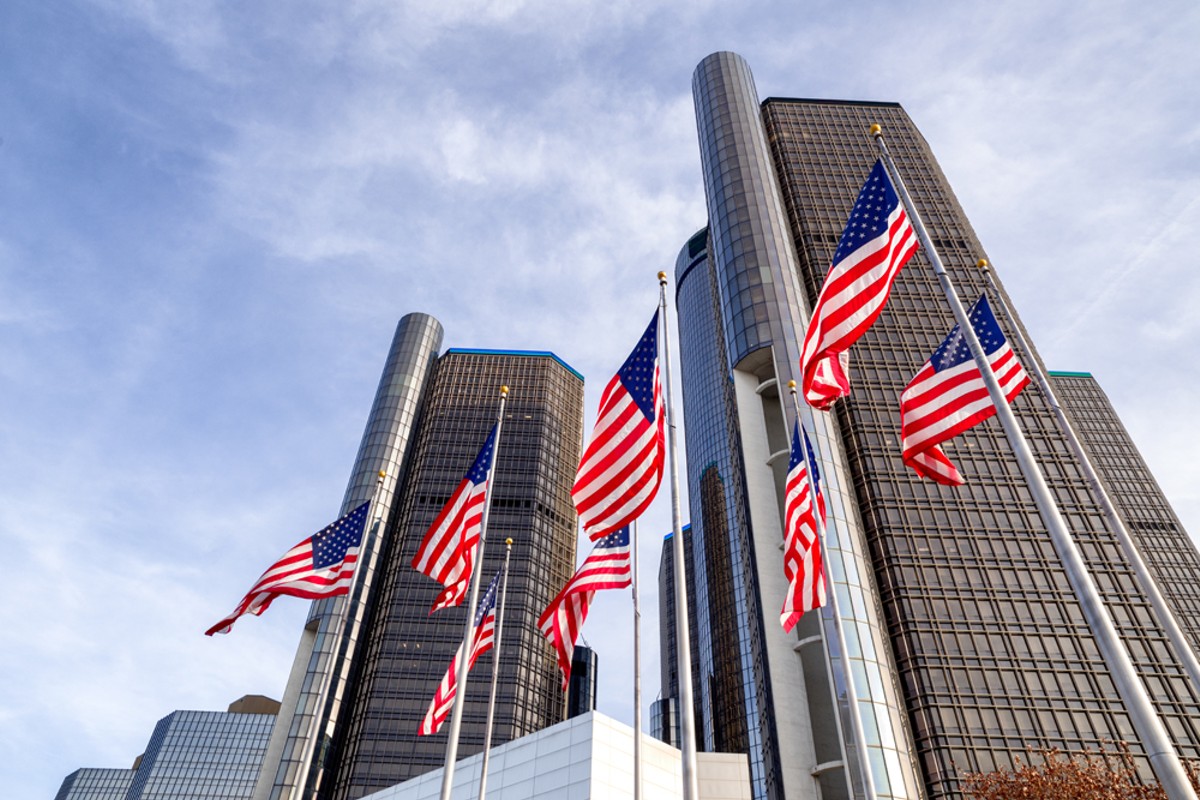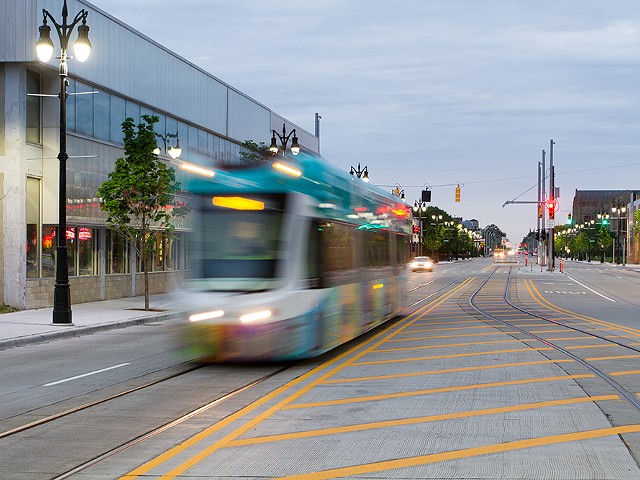There is something jarring about flipping between the news stories of General Motors' Detroit-Hamtramck Assembly Plant closing and Fiat-Chrysler's new east side facility breaking ground. When a plant opens, public and private sectors invest together, with millions in tax subsidies, land deals, and other incentives from local government. When a plant closes, the company doesn't pay back what they were given for one simple reason — they don't have to. Government either needs to stay out of the "economic development" game or learn how to write some more fine print when they invest public funds.
Detroit should welcome new business, and maybe there is justification for subsidizing development, but leadership can't be so naive as to believe in a lifelong guarantee, that we'll get as many jobs as we're promised, or that the business interests are always in line with the community that paid for those incentives.
The General Motors Detroit-Hamtramck Assembly Plant, also known as Poletown, named for the neighborhood it replaced, is a fascinating example of the many extreme forms of government intervention for business interests. It exists only because in 1980 the city of Detroit seized private land from homeowners, businesses, and communities of faith under eminent domain (in a version of the practice now found to be unconstitutional). Then, it was given renewed life when the federal government bailed out GM during the Great Recession. But once the U.S. sold its shares (at a loss), they lost their say in the future of the company.
Now, in a predictable but terrible twist, GM has announced the layoff of all remaining staff at the Poletown plant (as well as two others in the region). Even if those jobs move to another location in Michigan, closing this plant still means that the city that amputated one of its own neighborhoods to make room for this plant will have neither a community nor a place of work at the end of the day.
It's hard to blame a business for acting like a business. We cannot assume that business will be strong forever or that economic success will automatically translate into public benefit. GM is enjoying record profits, and it's taking that money with them.
In spite of the ample opportunities to learn this lesson (every vacant factory), we keep repeating these mistakes. It seems like all government does anymore is "economic development" rather than focusing of providing public services. Money is taken from the general fund to gamble on business developments, discounts are sprinkled on wealthy landowners in NEZ-zones and cheap land deals. The worst recent example is the $300 million in tax breaks for Little Caesars Arena, a deal with no clear mechanism to recapture those funds.
The more the economy suffers, the more local government is desperate for jobs and silver bullet solutions, so the cycle continues. If a project is good for community, it should be good every step of the way: from the sale of the land, to the construction of the site, to the jobs and environmental impact during its use, and the remediation and respectful closure when it inevitably moves on. We can't start a relationship by bending over and expecting to be treated as an equal later on. And no matter what protections are built into a deal, some funds should never be available for "investment" and must be spent for their intended purpose.
We won't have to invent any new techniques; local government is well-versed in securing its loans and grants to low-income people. We require stacks of paperwork for people seeking public assistance, even when the amounts of money are trivially small (try applying for food stamps or Medicaid or a tax exemption without a tote-bag full of personal documents). Forgivable loans are a great model for community benefits: a loan shrinks every year so long as the original terms are being met. If the loan recipient cancels their arrangement before the time is up, they'll have to pay a portion of the loan back. It's a way of securing the investment while still giving flexibility to the beneficiary.
We can also find precedent for protections against abandonment. When a mine or a gas station closes, it is required to remediate its environmental impact. We even have existing local policies for fighting against vacant and abandoned homes. Detroit could penalize GM (and so many others) for "nuisance abatement" if they leave a factory vacant.
Another lesson comes from community-benefit agreements. CBAs are tools to give residents and local stakeholders a seat at the table and make sure their interests are included in the investments and impact of new developments. Examples of community benefits are stipulations on how many jobs are provided to local workers, air-quality controls during and after construction, and local investment of profits to the surrounding neighborhood.
We usually think about community benefits as tools to be used at the negotiating table of a new business venture. Detroit passed a community-benefits ordinance in 2016, but it's extremely limited. It only applies to large projects ($75 million or more) and has modest impacts. These have not gone far enough, but even if they did, they still wouldn't address the challenges that come with a large development leaving the community.
Community benefits for a plant closure could look like a lot of things. It might mean just making GM re-pave the road around the Poletown facility. It might mean demolishing the structure, remediating pollution, and creating a nature reserve. It might mean getting that security deposit back and offering it as an incentive to a potential new business who may retool and occupy the space. The harder it is for GM to leave without considering the needs of its community, the more convenient it just might be to stay.
So when GM leaves town, we'll let them, but we can at least make sure they don't stiff Detroit on their way out. Detroit can seize the land again, or require GM to reinvest at least part of what they were given. Those funds could be turned over to another company to retrofit the plant for their purposes, they could be used to demolish the plant and turn the land into the next Belle Isle, or they could be used for unforeseen purposes that business interests would no doubt bring to the attention of city government. And when FCA or that next new business comes in promising the world, we'll give them the benefit of the doubt — but we won't forget to protect our investments. We can learn to love again, but let's sign a prenup this time.
Michele Oberholtzer is a housing advocate with the United Community Housing Coalition and a former candidate for state representative. More writing and can be found at oberdoit.com.
Stay on top of Detroit news and views. Sign up for our weekly issue newsletter delivered each Wednesday.






